7 Lessons from managing a (kinda pro) cycling team
Turns out running a sports team is quite stressful...
At the start of this year, I (kind of accidentally) stepped into the ‘Team Manager’ role at Ribble Rebellion. We were a brand new cycling team out of the UK with ambitious goals on the criterium scene.
Running the team was the most rewarding, yet tiring thing I think I’ve ever done - it was perhaps a little reckless too. Would I do it again? Yes, just not yet.
I think I learned more from managing Ribble Rebellion than anything else I’ve ever done. With that in mind, and with the state of the domestic cycling scene worldwide, I thought I’d put some of them here.
Maybe there’s a day in the future that I’ll come back and read this when I’m starting the next big team…
1. Stand Out.
It’s difficult to be different in modern-day cycling.
Everyone has the same goal of winning bike races, but ironically the sport is about so much more. It’s not enough to just win bike races anymore. If you win at the rate of a Tadej Pogačar, or Lotte Kopecky, then you’ll be okay. But, if you’re not winning the World Champs or a Grand Tour every other month, you need to do something bold.
We had three stand-out points at Rebellion:
Crazy coloured bikes and branding
Unique race calendar
Fun Riders
Our goals were pretty simple, we wanted to win and we wanted to disrupt. I think the nature of a group of Brits going to race in the US was a good start to the disrupt part. A British team hasn’t gone over to the US with lofty goals for years, maybe ever.
We did it with tongue in cheek British attitude too. You were just as likely to find us in a breakaway off the front as you were to find us having cheeky banter with the race commentators, or drinking a beer after the race.
One of the biggest compliments I think the team was given was that we acted like normal people. We could have fun before a race, have a laugh, and be the life of the party - but, when it came to business, we could turn it on.
I just had a thought.
This is what Team KGF, which later became Team Huub-Wattbike did. Their stand out points were similar: big characters with an underdog story. There are some similarities between their early mischief on the track, and how we were in the US.
2. Take Risks.
It’s pointless doing it the way it has always been done because we can all agree the business model of pro-cycling is inherently flawed.
We took risks on the hiring of riders, we were signing guys who could’ve seen it as a holiday year, and maybe wouldn’t take it seriously.
Not to sound like a broken record, but we headed to the States too. The norm would be to do early-season races in the UK, maybe hop over to Northern France, or Belgium and then come back for a summer of UK cycling.
By going big on the US, maybe we missed out on some media attention at home, but we opened ourselves to a whole new market that we didn’t even know existed.
Yes, we effectively still failed as the team wasn’t renewed, but I’d like to think we made as big, or bigger an impact than many other teams that have been around for years.
Note: There’s going to be an article about my thoughts on Ribble Rebellion’s folding later this week.
3. “Don’t be a dick.”
When signing riders for the team, I had a ‘don’t be a dick’ policy. It’s very rare in life that somebody is talented enough that being a bad person is acceptable, but for some reason, people are allowed to get away with this in elite sport. This wasn’t the case at Rebellion.
When you’re travelling, racing, and living with the riders in close quarters, you want to make sure that they’re good people. Of the eight riders I signed, I knew six personally. The other two were recommendations of one of my closest friends, and have both become close friends since.
I don’t think we had a moment all year that anybodies ego flared up so much so that it became a problem. We all pooled together: one person would drive, one cook, another do the dishes, someone else cleaned the bikes. It was all for one and one for all.
There was one moment, in our first crit of the year at Redlands. Bocky and Al had a few words after the finish line as one had perceived the other to get in the way during the leadout. I’ve seen small things like this blow out of proportion in other teams. But, ultimately because they’re both good people it was completely fine.
My mum always told me; “It’s not what you say, it’s how you say it.”, and that’s something I’ve always stood by.
4. Honesty is the best policy.
This could easily be renamed ‘culture’. A happy bike rider is a fast bike rider, and a bike rider is at their happiest when they’re secure.
Pro-cyclists are mercenaries. Contracts at the domestic level are single year at best, and never for that much, if any, money. Most chase it out of love, and for many chasing that dream never comes true.
I’m a strong believer in being honest from day one. With Rebellion, I always tried to put our cards on the table as soon as I knew them. I ended up in a slightly unusual situation as both manager and rider. I like to think that I was open though. As soon as I knew anything, the riders would find out.
The worst thing a cycling team, or any team, can do is over-promise. It’s so prevalent in the sports industry, and you hear of it all the time. There’s a joke that if you receive 50% of what’s promised in your contract then it has been a good year.
That was never the case with Rebellion. We came through with everything that we promised. Under promise, and over-deliver.
Hey! If you’re enjoying this article, could you please Subscribe by putting your email address in the box below. It’s completely free, and means my articles go straight to your inbox! Thanks.
5. Win.
My first point was “It’s not enough to just win bike races anymore”. That’s true, but a bike racing team is in the business of winning bike races. Winning alone won’t guarantee long-term success, but you’ve still got to win. It brings legitimacy.
It doesn’t matter exactly what you win. We managed to build a shed load of hype in the US by winning half the rounds of Speedweek, yet two weeks earlier none of us had really even heard of Speedweek.
Legion of Los Angeles mastered this. Yes, they were winning big races in the US, but they’d win little races too, and most didn’t know the difference. If you win, the content makes itself. Think of our video after Spartanburg.
I debated our calendar a lot when building Rebellion. We were hiring riders who had largely raced at the Conti, or ProConti level, so I knew they were top quality.
I was confident we would win, but equally I built a calendar of races that allowed us to win too. Be clever with where you go racing.
6. Cash is King.
Money matters more than anything else. It’s all well and good nailing the first five points here, but without money it’s pointless.
It’s a pet peeve of mine when people say ‘resource’ because 95% of the time they’re referring to money, or something that a bigger budget would be able to fund.
The funding model of a cycling team is interesting to say the least. In other walks of life where money is a key element - think business or investing - the mantra is 'diversification', but in cycling everyone's looking for that one big sponsor who'll solve the money problem. I think a more sustainable option is to split the funding.
[Ed, thanks to Jon Twigg for rewording the above paragraph]
Say, you need a budget of £100k. It’s better to have ten sponsors at £10k than it is one big at £100k. The thought process here is that it’s much easier to replace £10k, than it is £100k.
There are a few other points on money too. Don’t waste it is a big one. We definitely wasted money on bits this year, but then again, I suppose you have to waste money once to learn that it was a waste.
The best example here is hire cars, we didn’t realise just quite how much it cost to rent cars in the US and massively under-budgeted. I’d say we miss-allocated resources at times too. We invested in content around training camp, but a lot of that never came to light as by the time it was edited and good to go, our new kit had arrived so it was yesterday’s news.
Also, have a solid budget. Budget for stupid things, and then over-budget some more too. It’s better to always round-up, and add a 15-20% safety buffer than it is to run out of money in July.
A bigger budget opens doors. You can service the sponsors better by hiring a photographer, or videographer. You can hire a mechanic, or DS. This is something we didn’t have at Rebellion, and it saved us money. Yet, it did also mean we were negotiating with other teams for space in their van to take the bikes back down after mountain top finishes, and stealing bottles in the feedzone…
You can do it on a shoe-string, but it makes life much harder.
Finally on funding, if you have a big money sponsor offering you say, that £100k. I think you’d be much better asking them to split that £100k across two, or three years. Long term security matters.
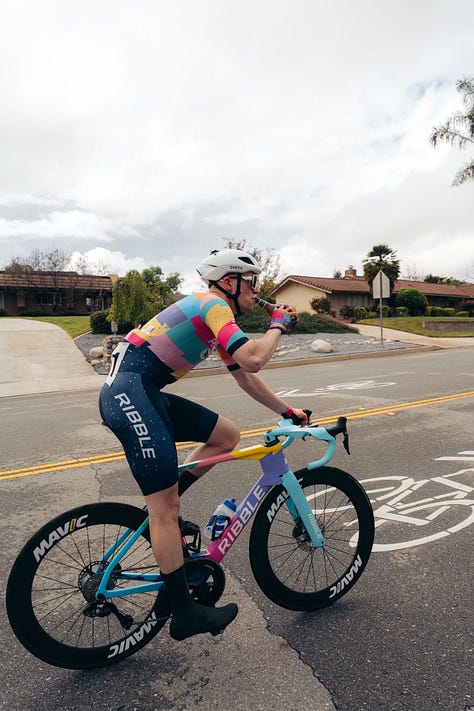
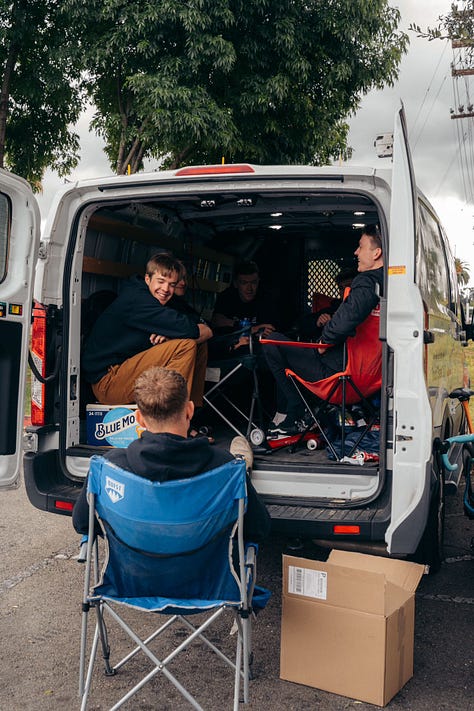
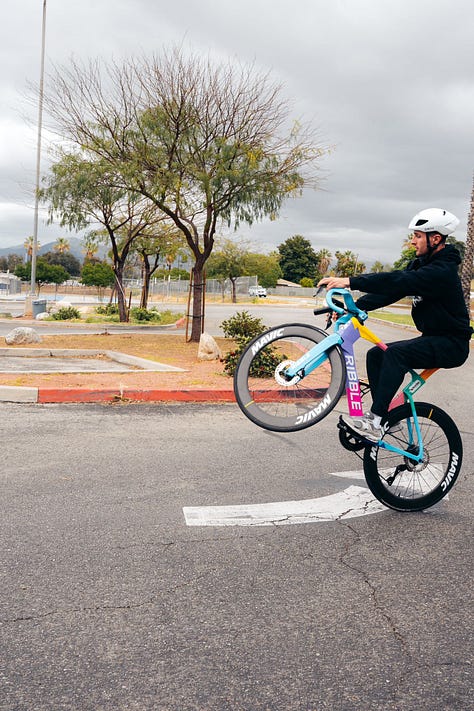
7. Know your why.
Why are you starting a team in the first place?
For Ribble, it was a marketing strategy. Our goal was to get the brand out there, and ultimately sell bikes off the back of it. However, if it’s not business, take a bit of time to think about it.
Running a team is difficult. It’s going to be sleepless nights, stress, expensive, and often a thankless job. Knowing your why is one of the most important things.
I could talk about this forever. If anybody is trying to set up a team, speak to people who have done it before. I think my biggest strength, but also my biggest weakness was my naivety. I should have taken time to speak to people who had previously held a role like this, and asked them to point me towards mistakes to avoid.
I think knowing your why is the most important point on this list. It means that when shit hits the fan, you’ll be able to step back and look at the bigger picture.
I suppose this is a word of warning in a way, make sure you know what you’re getting in for before you pull the trigger,
Thanks to Jon Twigg, for reading this article and giving the pointers I needed to improve it.
While you’re here…
I’ve added a paid subscription and a ‘Buy Me A Coffee’ link to this post. As the year progresses, I’m planning on building this blog and putting out articles which I’ve always wanted to write but for whatever reason, haven’t wanted to pitch.
Any money that I make from either my Substack or BMaC link will go straight back into supporting my 2025 racing project. I am planning on keeping all content on here free to view though.
https://www.buymeacoffee.com/joelaverick


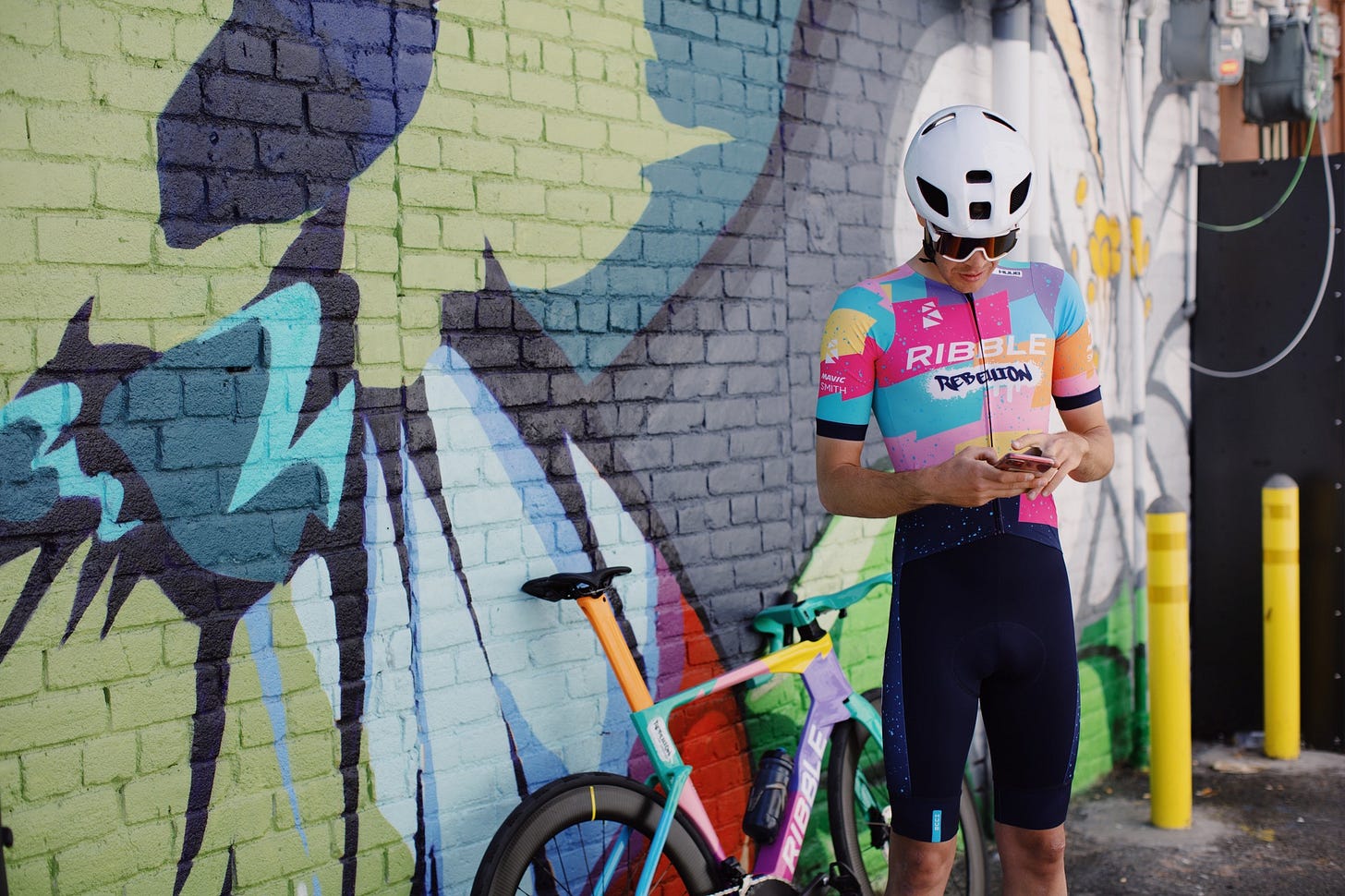
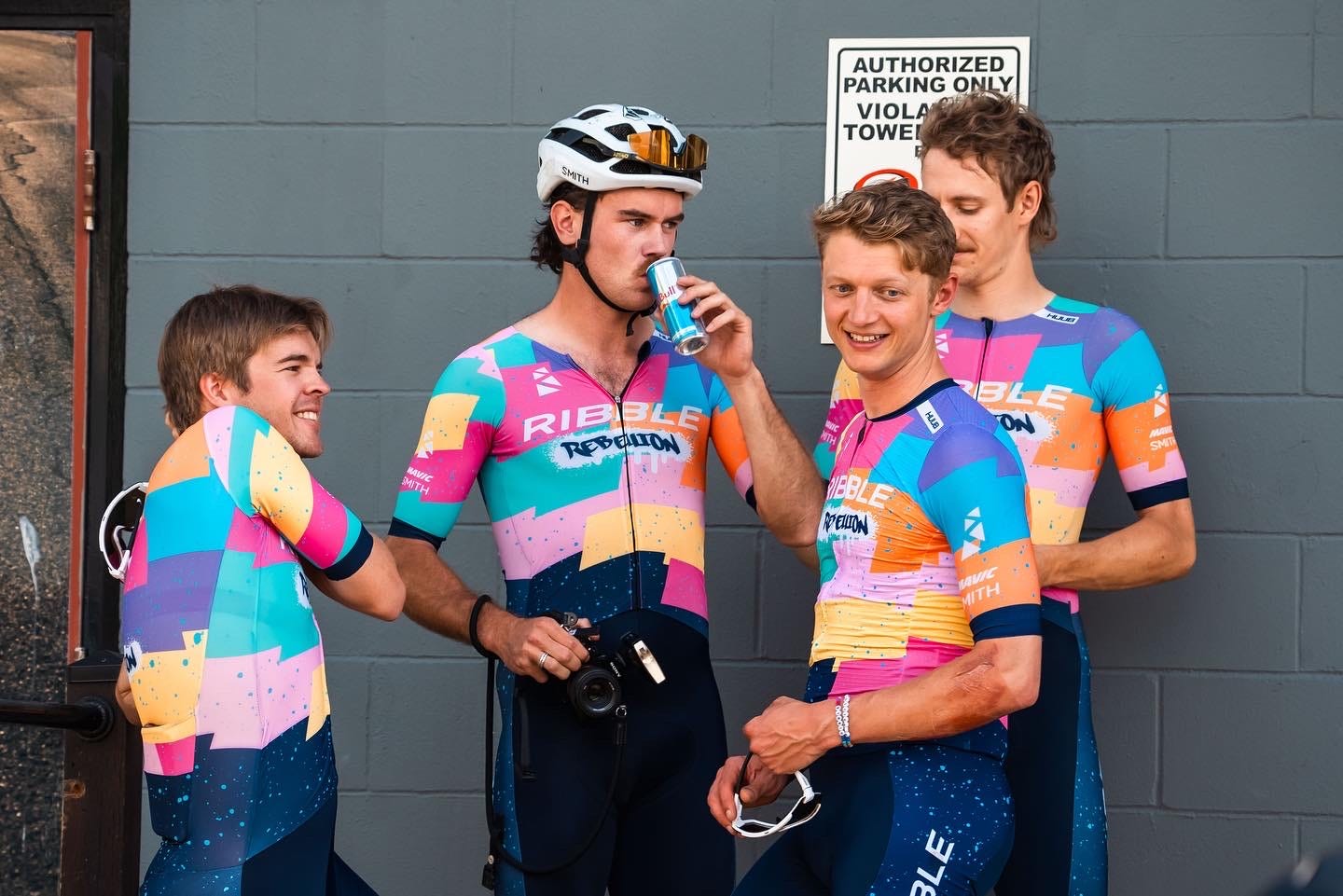
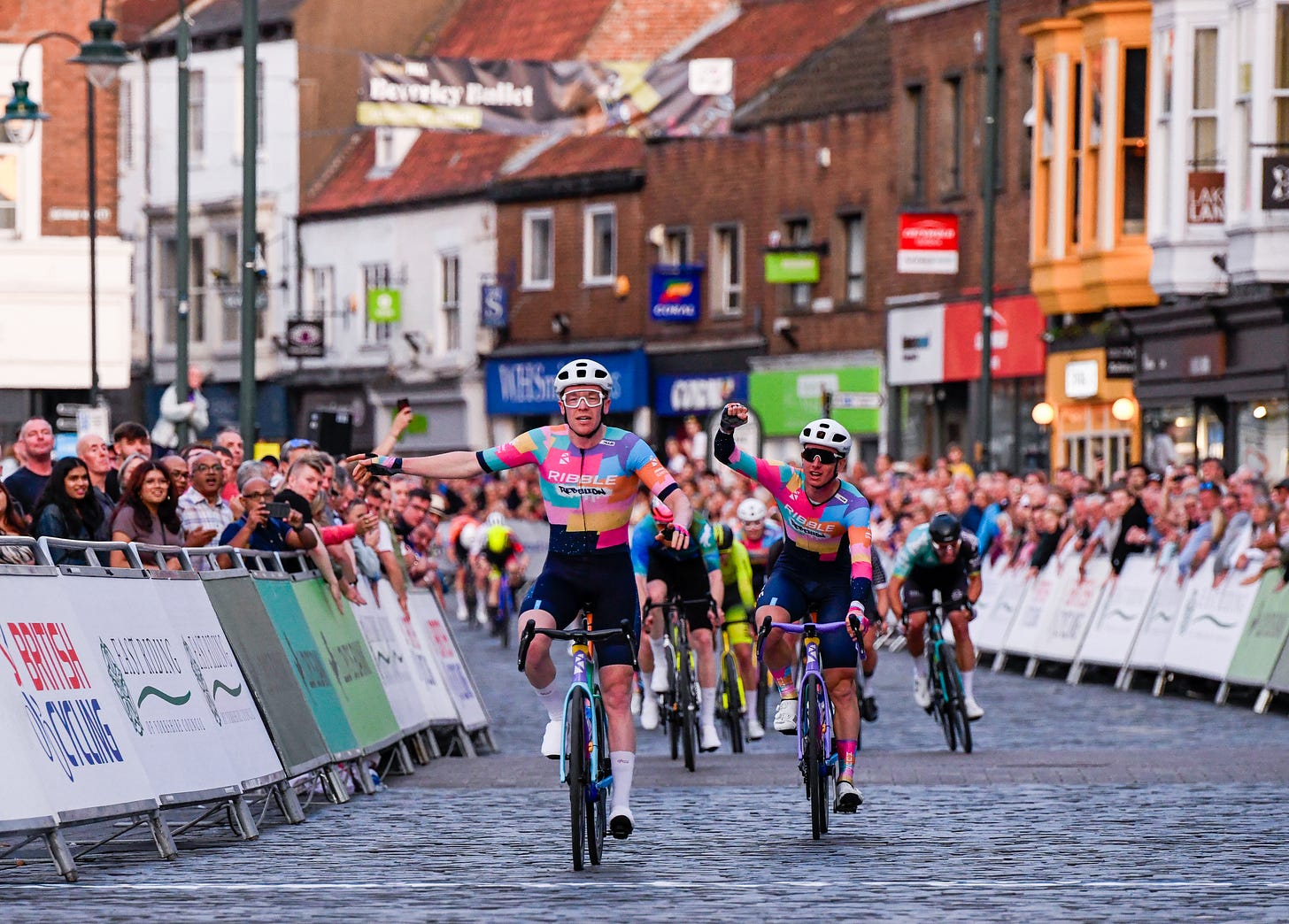
Within reason the cycling side of it worked but I suspect that didn't align with Ribble's objectives. Potential Ribble customers didn't see or hear about how great the colourful bikes were or want to buy Ribble Rebellion merch. I hope you try again.
Do you think being a rider-manager made you a better or worse manager overall? I’m sure it probably impacted your riding but did it also affect your managing?